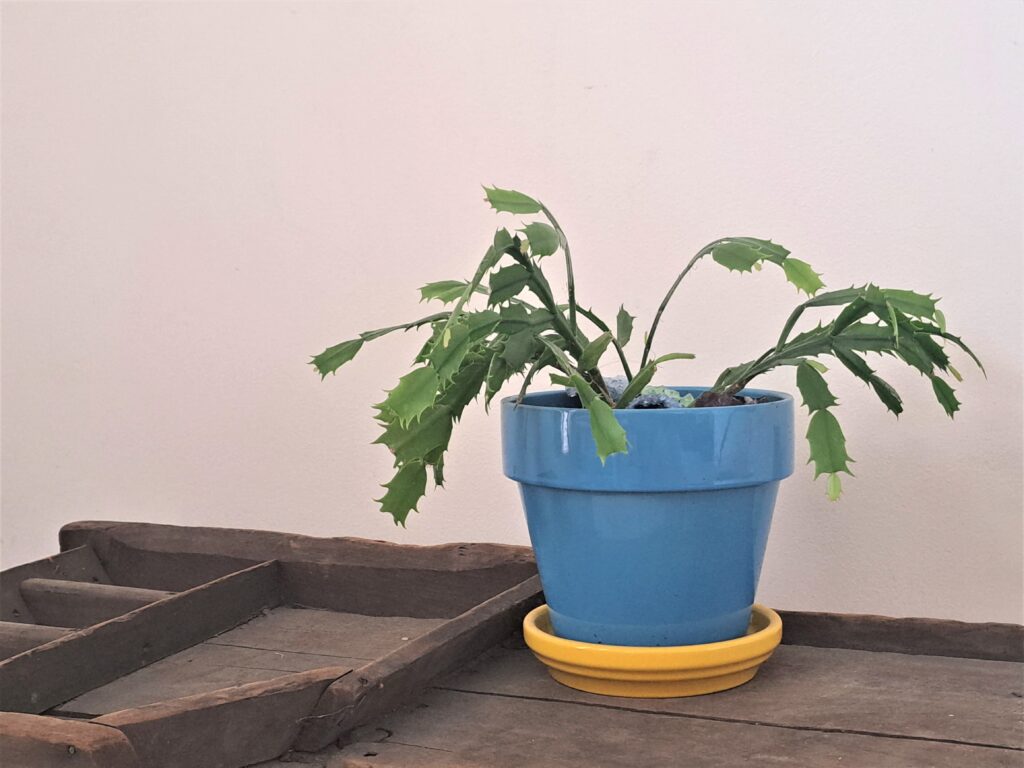Could Be More Than This
About thirteen years ago, I inherited a Christmas cactus. Miraculously, I haven’t killed it. Despite my infrequent watering and complete inattention, the green shoots wow us with its bright pink blooms each December. I grew pretty proud of our little plant.
Except last December I walked into my parents’ living room to behold a giant Christmas cactus shooting out of its pot. The vibrant green segments looked smooth and bursted with life. I felt their rounded edges and saw the liquid inside that plumped them with nutrients and vitality. The stalks exploded in a beautiful waterfall of verdant green. This plant didn’t look anything like my own cactus back home.
My plant’s flat, darkened leaves weeped down the sides of the pot. Yellow cracks and wrinkles littered each green segment which stretched back to its tattered-looking root ball. Somehow I never noticed it before. Yet now, looking at the beauty of all that a Christmas cactus could be, my limp plant back home came into focus more clearly.
This reality exists throughout much of our lives. How many times do we get used to something like a broken outlet or a dirty countertop until we finally fix it or scrub the counter and realize what we had grown accustomed to isn’t how it has to be. Or maybe it isn’t even how it’s supposed to be?
We’re constantly prone to this trap. Our brains purposefully pay the least amount of attention to the familiar. In a way this is good, for we’d grow exhausted if we had to deeply analyze every object we walked past. Instead, our brain just sees our counter, taking in the big picture and moving on. It doesn’t dwell on the stains that consistently cover its surface—it deals in much larger categories of cleared-off or cluttered.
Sometimes though, we’re just plain lazy. The weeping plant in the corner becomes “good enough,” and over time good enough morphs into as good as it can be until we’re jolted by the sight of something better.
These temptations creep far beyond plant care and home cleaning. We see them poke their head in our spiritual lives. Maybe we start our morning with purpose and prayer, yet as each hour ticks on our trust begins to shift upon ourselves. Anxiety rolls in and peppers our speech towards our kids or spouse. But it all feels so normal, so we think nothing of it. Our purpose becomes hazy, and we can’t quite remember all the aspirations we had today. As long as our to-do list is checked that’s got to be good enough, right?
Until we open up the Scriptures and all at once are awakened to something better.
Our Father knows how our brains work. He’s well acquainted with the natural ways we might miss our own faults, as well as the sinful ways we purposefully put off our growth. In his goodness, he’s provided us with the reminders we need to pull us out of our complacency. He gives us his Word and tells us to fill ourselves with its precepts (Ps. 119; Deut. 6:9–10; 1 Pet. 2:2). He gives us his Holy Spirit to actively move in our hearts, teaching us through that very Scripture (John 14:26). He refocuses our hearts on all that we were supposed to be—not in an effort to shame, but to convict and spur us on to the love and good work that the Lord has for us. Like a loving father he gently grabs us and beckons us to look at what we were made to be.
Yet the Lord doesn’t stop with Scripture. Every Sunday, God gives us another jolt to our complacency. As we sing next to our brothers and sisters in Christ, we are shaken out of the small world that comprises our week. We’re pushed to look for just a few hours of what could be—of what is supposed to be: Saints singing together, sharing burdens and prayers, and enjoying fellowship. We take in the words of the sermon and our good enough is challenged in ways we never saw on our own.
The Lord knows we need these reminders. The Christian life is communal, particularly because those other saints show us what we’re so prone to miss on our own (Heb. 10:24–25). They show us our blindspots—the parts of our lives that have faded into the background because we’re just so used to them. The mom who gently answers her preschooler when you’re talking after the sermon stands like a beacon in our own life of “what could be.” The man who comes up to say a kind welcome on a Sunday serves as a reminder of the ways you’ve let encouragement slip by the wayside.
We’re all imitating Christ, and God graciously uses all of us to spur each other towards that end because he desires so much more for us than a limp spirituality. He longs for us to know all the riches found in union with Christ. He wants us to grow in the knowledge of him and be strengthened by his own glorious power (Col. 1:9–12). Each time we open the Word of God or walk into our church building, we’re thrust into remembering all that could be.
Shortly into the New Year, I repotted my Christmas cactus. I got special soil, cut back its dead foliage, and have been working hard to revive it to its potential. It’s been several months now, and I still find myself picturing the vibrant cactus in my parent’s living room. I have to keep that picture in my mind or I might forget.
We all do. So let’s open that Bible one more time. Let’s get in the car for another Sunday-because God wants to remind us of what we were made to be.

